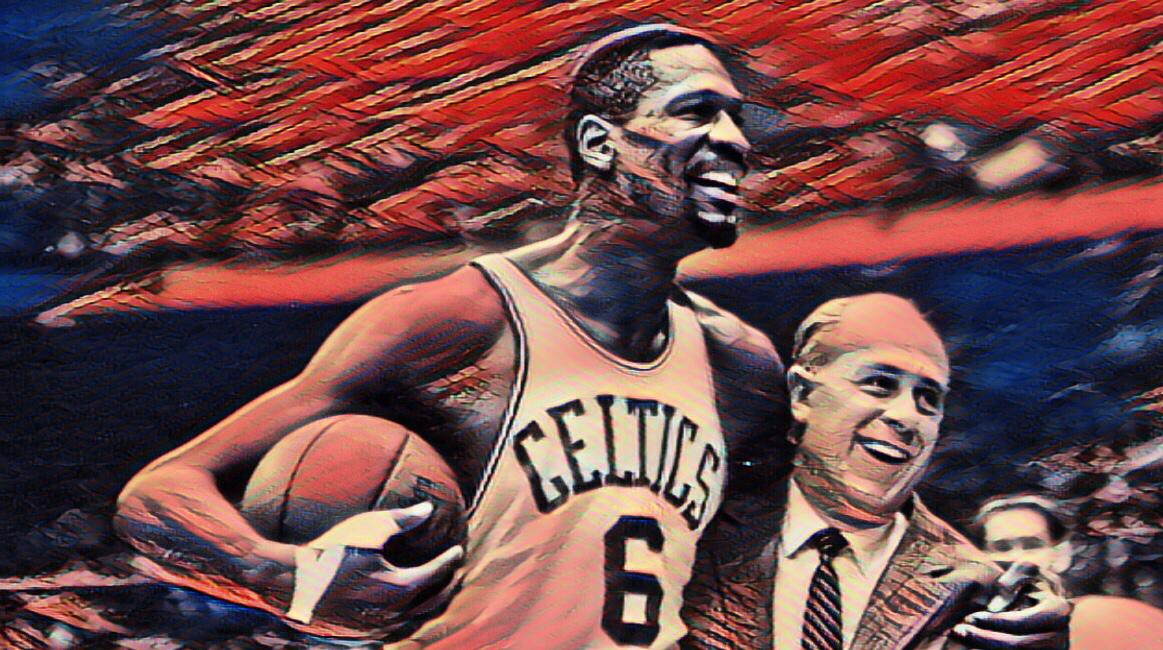Leadership has always been a hot topic, with countless studies and research dedicated to it. Nowadays, the concept of a leader is something we encounter in almost every field. Throughout history, people have naturally formed communities and selected leaders from among them. Leaders have always existed, guiding people to various goals. By nature, humans seek someone to lead them, whether it’s a parent for a child, a boss for an employee, a coach for an athlete, a master for an apprentice, or a commander for a soldier. These leaders learn their skills from other leaders. In essence, leadership is an important part of life and its continuous cycle.
“I am not afraid of an army of lions led by a sheep; I am afraid of an army of sheep led by a lion.”
As lives and societies continuously evolve, so do the environment and people. This means that leadership styles and behaviors also change, leading to the emergence of new types of leaders. But let’s break down the concept of leadership.
Undeniably, leadership is the art of leading a diverse group of people towards a specific goal in an organized, collective, and harmonious manner. Leadership can be both rational and emotional. A good leader must build trust, ensure their voice is heard, have their vision and views adopted, instill belief in themselves, stand firm against external factors, and critically assess their situation. Let’s dive into what leadership means in the world of sports.

Leadership in Sports
“A leader is one who knows the way, goes the way, and shows the way.”
The general definition of leadership we discussed also applies to sports. A good leader is aware of threats and opportunities and knows the strengths and weaknesses of their team. Therefore, a leader’s role in sports is crucial in fulfilling responsibilities towards achieving the goal. A strong leader focused on the target has the ability to unite and motivate all players towards that goal. They also have a direct impact on the team’s morale and confidence. There are numerous examples of how the influence of a coach off the field and the team captain on the field has led to incredible victories due to their unwavering belief in success.
Considering team levels and the nature of the game, it’s clear that no single leadership style is suitable for everyone in sports. Sometimes, teams composed of experienced and mature individuals progress quickly towards the set goal. Young players in the team can also improve their game by being influenced by experienced leaders. In today’s world, a dynamic and charismatic leader is preferred over a despotic, strict, and disciplined team leader. Different leadership needs arise depending on the player group and team philosophy. If we consider the coaches managing the teams as the main leaders, we encounter various leadership styles. A coach must have multiple skills and may adopt autocratic, democratic, or more laissez-faire leadership styles.
Some believe that leadership is an innate quality, while others see it as a skill that must be learned. Good leadership involves effective communication, technical and tactical strategy, which are qualities that can certainly be learned and developed. In football, for instance, communication is undeniably the key for a team manager. Good coaches know how to convey their message, implement their desired play, and communicate effectively with their surroundings. If a team clearly understands what is expected of them, it becomes easier for them to fulfill those expectations.
Coaching and leading a team is no easy task. It involves managing different personalities, learning styles, abilities, expectations, and continuity. Therefore, a leader must be extremely patient, clearly communicate expectations, and maintain team balance in both victories and defeats. They must dedicate ample time to their players and work as hard for the team as the players do. Leaders who identify with their groups, do not see themselves as superior, and act as part of the team manage the process more smoothly and successfully. Balancing authority and direction, knowing their players well, managing processes both on and off the field, and helping everyone do their best are traits of a “good” coach. Whether it’s crafting the perfect play, meeting sales targets, helping players reach their full potential, or achieving victories, coaches play a key role in all aspects.

Coaches
“Fail to prepare, prepare to fail.”
Although good coaches have different characteristics, they share many common traits. These leaders set grand but realistic goals, persuade their players to believe in these goals, are enthusiastic, visionary, plan and strategize, know how to overcome problems, are resilient, have zero tolerance for failure, uncover talent and potential, and inspire confidence and belief. Let’s look at some defining characteristics of a few legendary coaches.
Sir Alex Ferguson: Enthusiastic, humane, blunt, strong, consistent
Jose Mourinho: Charismatic, emotional, intelligent, blunt, consistent
Pep Guardiola: Serious, humble, hardworking, intelligent, calm
Arsene Wenger: Thoughtful, optimistic, stylish, visionary, loyal
Jurgen Klopp: Hardworking, warm, friendly, ambitious, enthusiastic
Del Bosque: Calm, fatherly, friendly, traditional
Fatih Terim: Fatherly, motivator, ambitious, blunt
Fabio Capello: Demanding, uncompromising, pragmatic
Thomas Tuchel: Intelligent, hardworking, ambitious, cold
Carlo Ancelotti: Charismatic, intelligent, fatherly, calm
Antonio Conte: Blunt, demanding, ambitious, enthusiastic
Players desire a successful and positive relationship with their leaders. This successful and positive relationship is possible through the traits and behaviors mentioned above. In today’s football, especially at the highest level, what sets coaches apart are their leadership skills. These skills are not a divine gift granted at birth, as some say, but are developed through hard work. Looking back in history, we find many German coaches with these skills who have made a name for themselves and achieved countless successes. It’s practically a tradition. So, what is the German coaching tradition?
The German Tradition
“Football is a simple game; 22 men chase a ball for 90 minutes, and at the end, the Germans always win.”
Germany has always been a leading nation in football. The country has achieved countless successes both nationally and internationally, with its clubs and national team. These successes owe much to the talented coaches alongside the players.
A talented, well-educated, and specialized orchestra needs a conductor. This is true in the kitchen, the military, the office, and state institutions; almost everywhere from general to specific. The same applies to football. Just as there is no orchestra without a conductor, there is no football without a coach. Football is a team sport, and no matter how talented the players, a coach is needed to help them reach their potential through training, apply tactical and strategic intelligence during crucial moments in matches, manage psychology effectively, and develop internal team relationships. This person is the coach.
Germany develops its football coaches with the same precision and attention to tradition and innovation as it does its cars. Famous German discipline and education quality are combined with German football to produce some of the world’s leading coaches. This successful German coaching tradition has emerged from the prestigious Hennes Weisweiler Academy.
The Hennes Weisweiler Academy, which offers Germany’s top coaching license, is one of the world’s most prestigious football schools. Established in 1947, the academy is named after Weisweiler, the legendary coach of Cologne and Gladbach.
Admission to Weisweiler is highly selective, requiring a UEFA A License, passing tests, and working with a club affiliated with the German Football Association. The academy offers an 11-month program with 800 hours of training, compared to UEFA’s Pro License program which is 240 hours. The difference is evident in the performance of recent German coaches.
Germany launched a football revolution in 2000, establishing training centers nationwide. It became mandatory for every Bundesliga club to have at least two Pro-License coaches. The thesis is clear: for success and great players, you need the best coaching staff.

German Coaches
“The ball is round, and the game lasts 90 minutes.”
Sepp Herberger, who started the course at the German Sports University on November 1, 1947, and laid the foundations for the Weisweiler Academy, was the first to bring the World Cup to Germany. However, it was Weisweiler, who named the academy and wrote the book “Der FuBsall. Taktik, Training, Mannschaft,” inspiring and helping coaches of all levels for years. Weisweiler was also one of Herberger’s first graduates. Let’s look at other renowned German coaches who passed through this successful training.
Hennes Weisweiler: Managed Borussia Monchengladbach, Cologne, and Barcelona, winning a total of 11 championships and training coaches worldwide, including Jupp Heynckes.
Helmut Schon: With an extraordinary 14-year career, Schon won the FIFA Order of Merit, the 1974 World Cup, the 1972 European Cup, and reached the 1966 World Cup and 1976 European Cup finals.
Ottmar Hitzfeld: Starting his coaching career in Switzerland, Hitzfeld led Basel and Grasshopper to two championships each. He then won the Champions League with Borussia Dortmund and later with Bayern Munich, achieving 19 championships overall.
Dettmar Cramer: Known as the “Football Professor,” Cramer made a significant impact on Japanese football and its sports economy. He established coaching courses and helped many players and coaches develop.
Udo Lattek: Won three major European championships with three different teams and eight Bundesliga titles with Bayern Munich and Monchengladbach.
Otto Rehhagel: Famous for his defensive teams, Rehhagel won the shock 2004 European Championship with Greece and 11 championships, including two leagues and one European title with Werder Bremen.
Franz Beckenbauer: Known as “Der Kaiser,” Beckenbauer was a legendary player and coach, winning the World Cup as both. He also achieved league titles with Marseille and Bayern Munich.
Jupp Heynckes: Won the Champions League with Real Madrid in 1998 and Bayern Munich in 2013, along with four league titles and several cups. He was the first German coach to win the league, European Cup, and German Cup simultaneously.
Jurgen Klopp: Known for his “gegenpressing” style, Klopp broke Bayern’s dominance with Borussia Dortmund and later led Liverpool to numerous titles, including the Champions League and Premier League.
The list could go on with names like Joachim Löw, Thomas Tuchel, Hansi Flick, Julian Nagelsmann, and many more successful coaches, all products of the Weisweiler Academy.
In conclusion, leadership is about motivation, vision, action, and organizational skills. Leaders give people dreams, hope, and strength. They create the future, inspire, guide, and develop their philosophy. Coaches, as leaders in the football industry, bear these responsibilities.
Vision and organizational skills are the forefront, and this is where the successful German academy Weisweiler comes in. The academy’s emphasis on organization and visionary education has produced great coaches, establishing a German coaching tradition.
I hope one day we will focus on training good educators who will then train great footballers and coaches. This way, we can achieve more success internationally with better players, coaches, and teams. Hopefully, these dreams will come true one day…







